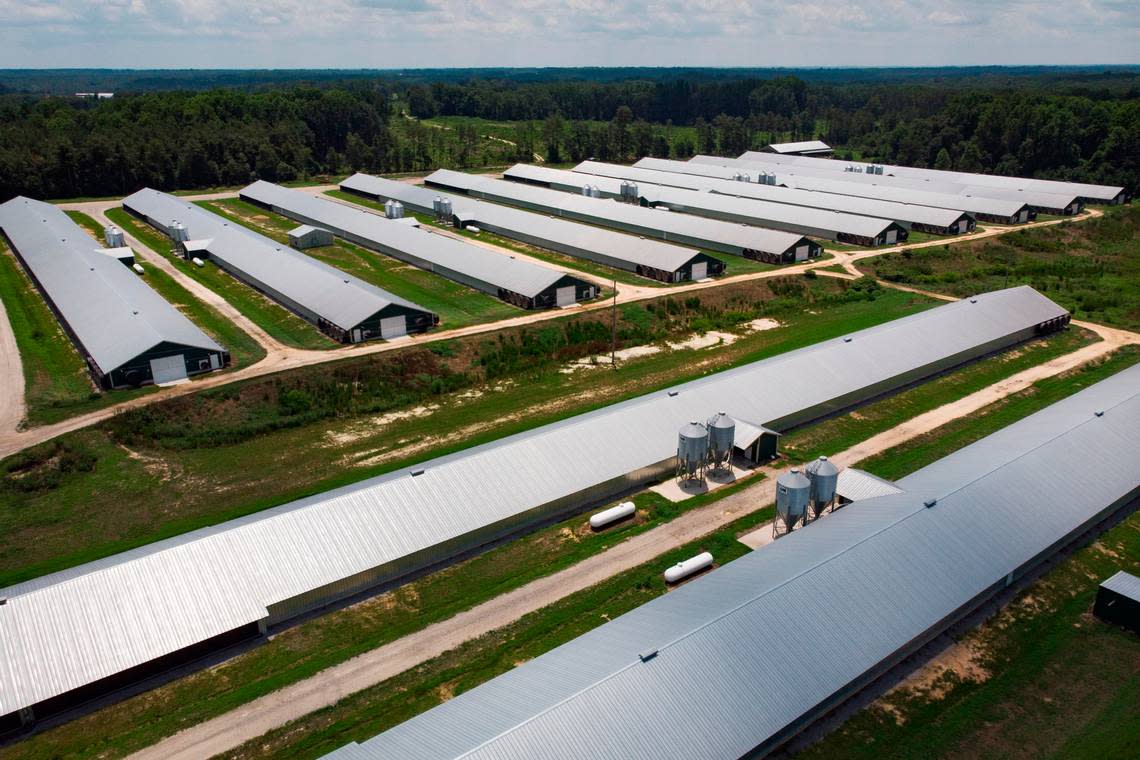Supreme Court won’t step in to save NC law that punished secret recordings

The U.S. Supreme Court will not hear a case involving a 2015 law in North Carolina that aimed to punish undercover recording at farms and other businesses, upholding a legal victory for advocates who argued the law restricted whistleblowing.
Earlier this year, the federal 4th Circuit Court of Appeals ruled part of the law was unconstitutional because it prevented employees who are trying to expose wrongdoing from recording at work or gathering data that could be used as evidence. By preventing employees from gathering information, appeals court judges ruled, North Carolina’s Property Protection Law violated the workers’ First Amendment rights.
On Monday, the Supreme Court denied a writ of certiorari in N.C. Farm Bureau Federation v. PETA, meaning it will not review the 4th Circuit’s opinion.
The 2015 Property Protection Act, or House Bill 405, was one in a series of bills General Assembly passed to protect the state’s agricultural industry — particularly its hog and poultry industries — from scrutiny. Under the legislation, employers could sue a worker caught recording in “nonpublic areas” or collecting data, with penalties of as much as $5,000 per day plus damages.
Opponents of the legislation called it an “ag gag” law, arguing it was meant to quell information about the state’s large-scale hog and poultry farms.
Every time such a law has been challenged, it has been struck down either in whole or in part, David Muraskin, the managing director of litigation for FarmSTAND, told The News & Observer. Muraskin represented a group of nonprofits like PETA, the Animal Legal Defense Fund and Food & Water Watch that challenged the North Carolina law, arguing it had a chilling effect on their ability to conduct investigations.
“People have a right to know about illegal and unethical conduct. Exposing unsafe or inhumane practices and working conditions is essential to holding powerful bad actors accountable for the harm they cause. Ultimately, a contrary ruling would have had a chilling effect on whistleblowers and undercover investigations across the board – from animal welfare issues to documenting sexual harassment in the workplace,” Muraskin told The N&O in a statement.
McClatchy, which owns The News & Observer, was one of 17 media organizations that filed an amicus brief in favor of plaintiffs in the case.
Bill sponsors said the Property Protection Act still provided protections for whistleblowers, provided they take their findings to law enforcement or regulatory agencies instead of the media or advocates.
“The Supreme Court’s decision not to hear our case is disappointing and troubling. Farmers and other North Carolina businesses are now more vulnerable to having their farms, offices, and facilities infiltrated by fake employees and double agents,” Jake Parker, the N.C. Farm Bureau’s secretary and general counsel, told The N&O in a written statement.
The 4th Circuit’s ruling earlier this year noted that the state has other protections in place that protect client lists and trade secrets.
Law’s supporters call for legislature to act
In light of Monday’s Supreme Court decision, the Farm Bureau is calling for a new legislative effort to prevent undercover activity among the state’s agricultural workers.
“Hopefully, the General Assembly will step up again and protect our fundamental rights to privacy and property. Meanwhile, farmers and other business owners should consider themselves activist targets and take caution when hiring new employees,” Parker wrote.
Muraskin, the attorney who represented PETA, argued that North Carolina politicians could enact laws to prevent trespassing and protect property that would not violate the Constitution. But, he argued, those stated targets are being used to hide the true goal of preventing the public from better understanding how the state’s large-scale animal feeding operations are operated.
“When you only prohibit entry on a property when someone gathers and subsequently shares information about illegal or unethical activities on the property, you’re not trying to protect property. You’re trying to quell speech,” Muraskin said.
Shortly before the 2015 bill was passed, an animal rights group had published an investigation of chickens being kicked, spun by the necks and jammed into a shed, The N&O reported at the time. That resulted in felony charges for the worker on the video.
Employee groups also argued that because the Property Protection Act could be applied to any business, it would potentially have a chilling effect on nursing home workers’ efforts to document abuses.
Gov. Pat McCrory, the state’s then-governor, vetoed the bill, The N&O previously reported, arguing it didn’t provide adequate protections for genuine whistleblowers. McCrory argued that it would be “contradictory” to sign the bill into law just days after signing another bill that increased penalties for group home workers who failed to report sexual abuse of patients.
“Any business can continue to do business in North Carolina safely and securely. What this is about is no longer suppressing the ability to communicate truthful information about illegal and unethical activities. Why either the state or businesses would want to keep that information from the public you can only guess, but it seems like the answer’s pretty obvious,” Muraskin said.
This story was produced with financial support from the Hartfield Foundation and the 1Earth Fund, in partnership with Journalism Funding Partners, as part of an independent journalism fellowship program. The N&O maintains full editorial control of the work.

